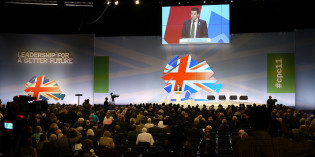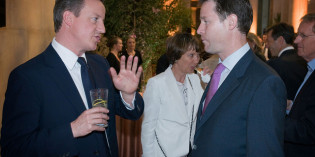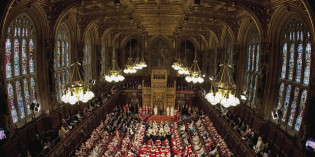Author Archive: democraticaudit

A wider debate on how Europe shapes British policy making is now needed
The UK’s forty-year relationship with the EU and its predecessors has seen a significant integration of EU policies into the UK’s institutional culture. Janice Morphet looks at how the UK has implemented EU legislation in recent decades, finding that there has been little public discussion of their potential implications. She argues that it may now be time […]

The decline in party membership across Europe means that political parties need to reconsider how they engage with the electorate
Is party membership still an important part of European political systems? Ingrid van Biezen outlines results from a study, co-authored with Peter Mair and Thomas Poguntke, of party membership rates in 27 European democracies. She notes that party membership levels vary significantly between European countries, with Austria and Cyprus containing the highest levels as a percentage of […]

The Endgame: How might the Conservative-Liberal Democrat coalition government finish?
As the partisan debates around legislation on gay marriage wend their convoluted way through the Commons this week, exposing once again huge fissures between Conservative MPs and activists on the one hand and the PM and leading government modernizers on the other, so speculation about the end of the coalition government and the date of […]

Book Review: Accounting for Ministers: Scandal and Survival in British Government 1945-2007
Accounting for Ministers uses the tools of modern political science to analyse the factors which determine the fortunes of Cabinet ministers. Utilising agency theory, it describes Cabinet government as a system of incentives for prime ministerial and parliamentary rule. Lord Wilson has reservations about the attempts to analyse the rich, complex, impossible lives of Ministers with the methods of […]

Politicians often claim commitment to decentralising the state, but once in government they are unwilling to relinquish their own power
The nature of the British political system is such that Westminster is a bastion of concentrated power. Martin Smith, Dave Richards and Patrick Diamond argue that whilst politicians may actually call for more localism, they are loath to give up their own power. Any government’s commitment to localism and devolution is undermined where there is no willingness to entertain a new […]

There is still a very long way to go before votes at 16 at general elections becomes a reality
The negotiations between the Scottish and UK governments over the terms of the Scottish independence referendum have resulted in a deal widely trumpeted as allowing 16 year olds to vote when the ballot takes place, probably in Autumn 2014. Unsurprisingly, this move has re-awakened the wider debate about lowering the voting age, with some arguing that it […]

Time to tackle the growth of the ‘payroll vote’
The number of Members of Parliament who take the ‘Government whip’ has continued to grow. This trend is exacerbated by a larger number of members of the House of Lords who have become Ministers, who escape the kind of scrutiny which we associate with the House of Commons. Stewart Wilks-Heeg argues that is time to […]

Whatever happened to reforming the political system?
In May 2009, as leader of the Liberal Democrats, Nick Clegg announced his 100 day action plan ‘to save British democracy’, ‘take back power’ and ‘change politics for good’. Clegg’s proposals were for an urgent and far-reaching set of political reforms, including fixed-term Parliaments, a mechanism for voters to be able to recall MPs, a referendum on […]

Liverpool’s mayoral election ‘censorship’ row
This week, every household in Liverpool will receive a booklet from the city council containing election addresses from the 12 candidates seeking to become the city’s first directly-elected mayor. In theory, this arrangement, which is used for all mayoral elections, helps to level the playing-field for candidates, providing all with an equal chance to reach the electorate. […]

How should ‘political England’ be recognised?
In the newly published IPPR pamphlet The Dog That Finally Barked: England as an Emerging Political Community, Richard Wyn Jones and Guy Lodge demonstrate, to anyone’s satisfaction, that there is such a thing as English identity and that it has a political component. Lewis Baston examines the arguments around the recognition of England as a political entity. […]



 Democratic Audit's core funding is provided by the Joseph Rowntree Charitable Trust. Additional funding is provided by the London School of Economics.
Democratic Audit's core funding is provided by the Joseph Rowntree Charitable Trust. Additional funding is provided by the London School of Economics.